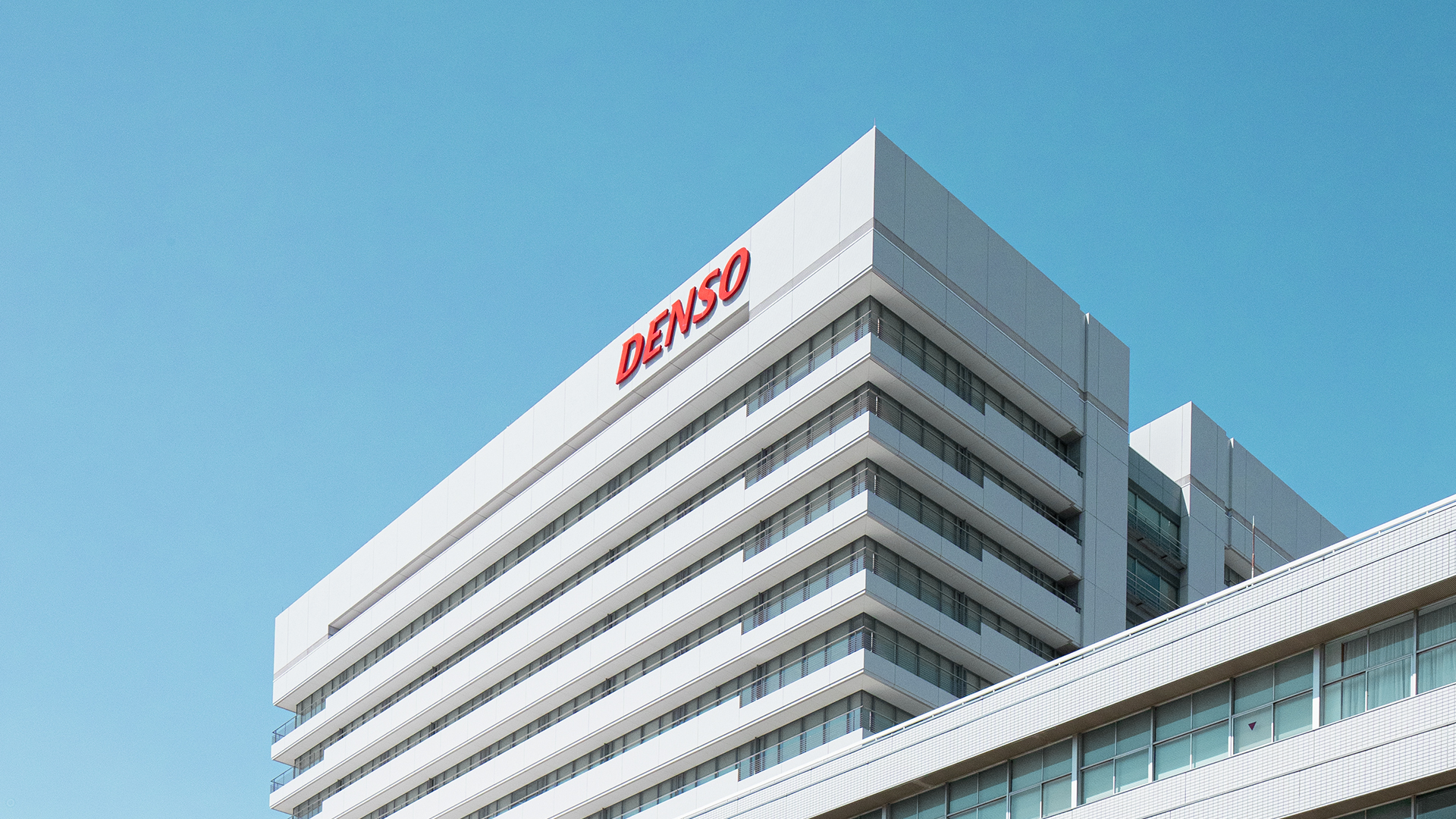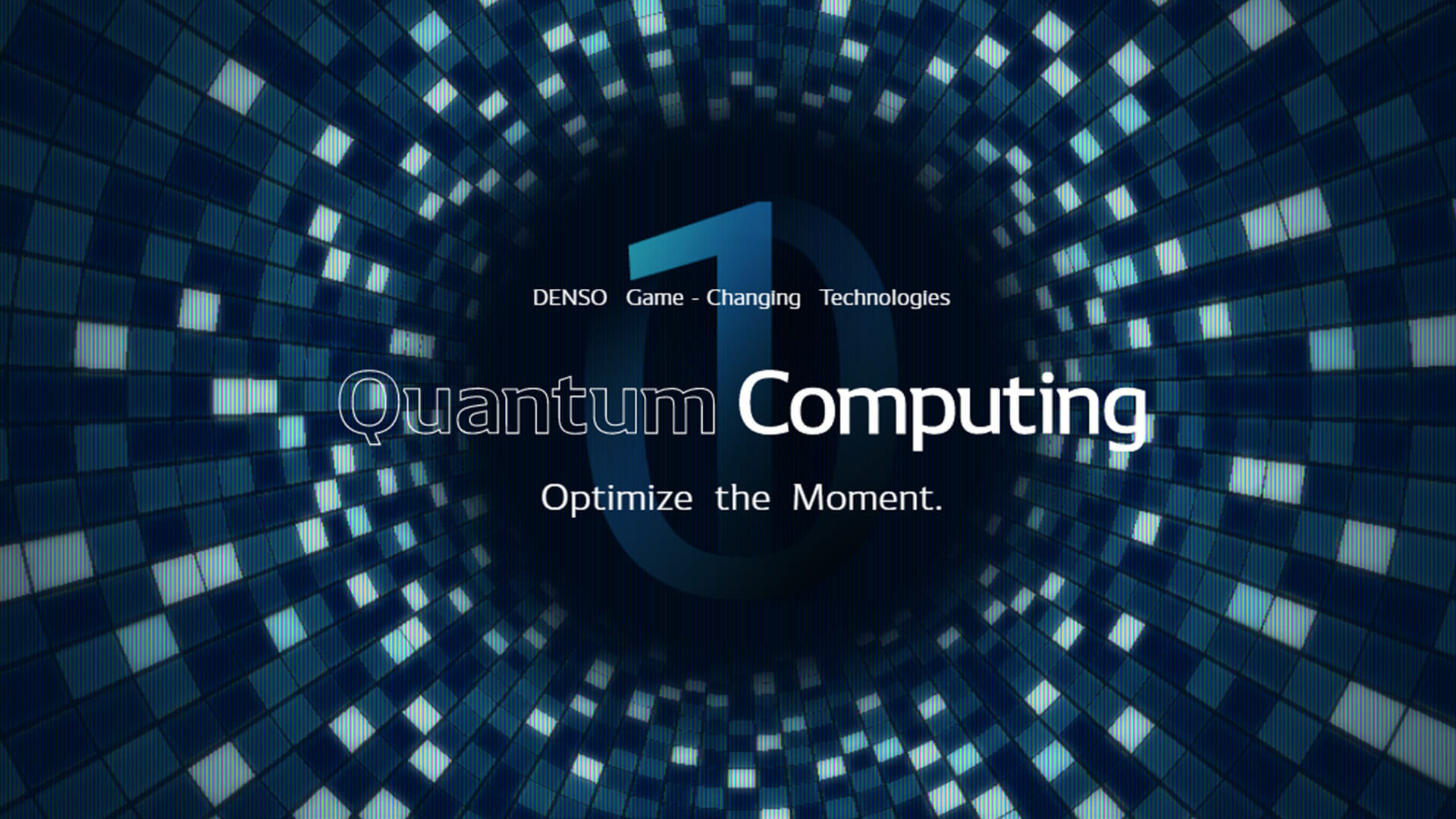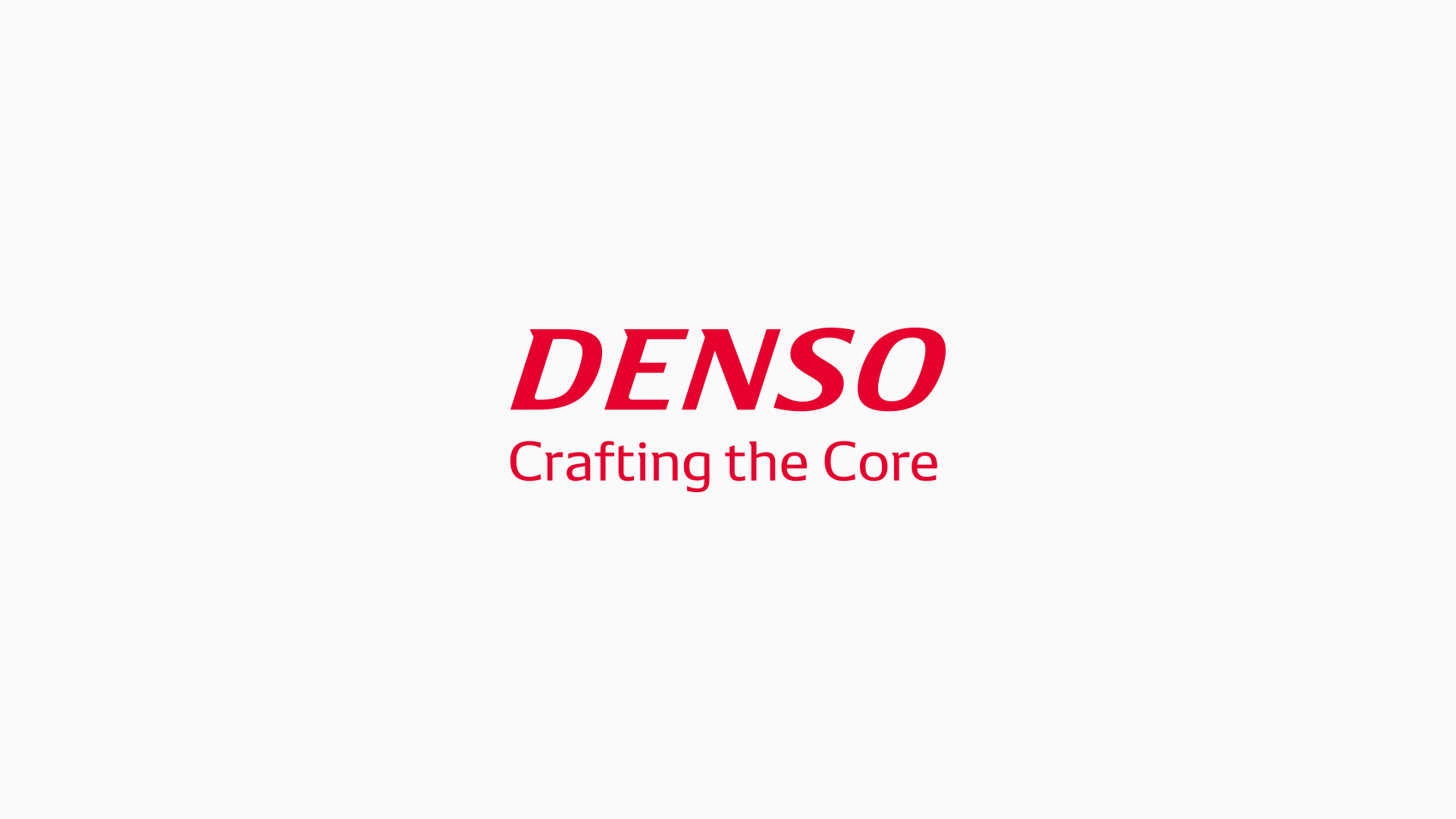
Intellectual Property
Basic Policy
DENSO strives to resolve the various issues of society, including carbon neutrality and the elimination of traffic accident fatalities, through its continuous efforts to create new value. We believe that, by accumulating such achievements in the form of patents, software, and other intellectual property and utilizing them as assets for society as a whole, we will contribute to the sustainable development of society and achieve corporate growth.
Therefore, in addition to promoting intellectual property (IP) strategies that focus on individual products, DENSO is pursuing IP portfolio management in which IP is managed as an asset portfolio for realizing our future vision. Through these efforts, we aim to further strengthen the cycle of IP portfolio value enhancement and IP investment and elevate our IP strategies to the level of IP-focused management that benefits corporate management.
Intellectual Property Strategies
DENSO is promoting IP strategies that are linked to its business strategies in its efforts to realize its Long-term Policy for 2030. By focusing on R&D in growth fields and new fields, in particular, we are steadily accumulating IP in these fields, which will form the foundation of future businesses.
In addition to accumulating IP, while identifying a value creation story for our long-term vision and the core technologies that will play a prominent role in this story, we have backcast from our DENSO R&D Policy Guideline to design a target profile for our IP portfolio. To realize this profile, we are both adding and removing IP from the portfolio.
In designing our Companywide IP portfolio, we have approached it from three perspectives: a Companywide level, a business level, and a development theme level. Based on a target profile for each level, we will add and remove IP from the portfolio. We are utilizing three new indicators in our IP portfolio design activities. A leading indicator mainly emphasizes such new fields as Mobility as a Service (MaaS) and agricultural technology (AgTech) and shows trends in our future IP portfolio. In addition, a current indicator is primarily focused on battery electric vehicles (BEVs), advanced driver assistance systems (ADAS), and other growth fields and measures the strength of our present IP portfolio. Meanwhile, a lagging indicator mainly reflects fields related to the de-emphasis and discontinuation of internal combustion engine products and shows the track record of our established IP portfolio. Based on these indicators and in step with product life cycles, we are pursuing IP investment that contributes to the strengthening of IP competitiveness and the realization of our future vision.
With respect to the aforementioned development theme level, at the stages beginning from the exploration of commercialization themes through to commercialization development, we will analyze vast amounts of IP information, including the patents of other companies, and establish and verify hypotheses in a timely manner. These efforts will allow us to provide input that contribute to product development activities. For example, we will clarify core technologies that both underpin competitiveness and help to address social issues. Through these activities, we will steadily turn our development results into company assets in the form of IP rights. By utilizing these IP rights in a timely manner (aimed at maintaining price competitiveness through differentiation, building business ecosystems through strategic alliances based on IP, and obtaining licensing revenue in “open” fields through an “open/close” strategy), we will achieve sustainable growth and increases in our corporate value.
In light of major changes in the added value of automobiles as a form of mobility, we will strive to expand DENSO’s business by not only promoting patent strategies that focus on growth fields and new fields but also advancing efforts to create intellectual assets that are not limited to patents, in line with the transition to software-defined vehicles (SDVs) and advances in open innovation, and strategically utilizing the assets acquired through these efforts.
IP Promotion System
IP Governance System
In addition to discussing IP strategies for each business, DENSO holds various meetings to deliberate on the planning and implementation of IP investment strategies from the perspective of Companywide IP management. Through these discussions, we aim to demonstrate and increase DENSO’s corporate value by integrating management and IP activities.
Strengthening of Global IP System
To support overseas development and design, we have set up IP organizations at our development and design bases in North America, Europe, and China, thereby strengthening our efforts to acquire and use IP rights for local inventions and examine other companies’ IP rights. Furthermore, at our locations in North America and Europe, we deploy patent attorneys to provide support in patent disputes. In China, we are strengthening protection of the DENSO brand by taking measures against counterfeit products and copyright infringements. In addition, we hold the Global IP Conference on a regular basis with the aim of resolving Groupwide and local issues pertaining to IP management and enhancing our governance in all regions of operation.
Specific Initiatives
Promoting IP Strategies for the Electrification of Automobiles
The following case study is an example of IP activities (development and design phase) in the Electrification Systems Business Group. Through a technology development structure that is based on a V-shaped process and a field-driven IP promotion system that executes this process, the Electrification Systems Business Group promotes IP activities that are fully linked to its development activities, allowing it to flexibly respond to changes in the business environment. The development process of this business group involves a product design phase that is in line with strategic planning and customer needs and divided into three layers: requirements analysis, system design, and component design. Products, such as motor generators, inverters, and battery electronic control units (ECUs), are released to market upon verifying that the developed product meets the specifications of each design layer.
In this process, during strategic planning, policy decisions are made based on a comprehensive analysis of patent information, while during requirements analysis, policy decisions and branding strategies for electric vehicle components are discussed using product-level patent information.
A patent information analysis that conforms to the specifications of each design layer is also conducted during system and component design, and IP activities, such as rights formation and clearance searches, are incorporated into each layer of the development process based on the established policies for these activities.
IP Activities Based on Electrification Business Processes
The ELEXCORE brand of electric vehicle components was designed to express our determination to contribute to a decarbonized society and our customers through differentiated electrification technologies and serve as the core of our various electric mobility products that offer high quality, high performance, and compactness.
Respect for Other Companies’ IP Rights
DENSO sees problems related to other companies’ IP rights as equally important as major quality problems that impact its corporate value. From the development stage, the Company examines the IP rights of other companies and has clearly defined internal rules, for which strict compliance is observed, to ensure that its products and services do not infringe on the IP rights of third parties.
Prevention of Infringement of IP Rights by Third Parties
DENSO takes appropriate and lawful steps to combat infringement of its IP rights by third parties.
These measures are actively taken not only for patents but also, for example, against counterfeit products. There are many quality-related problems with counterfeit products, including with imitation trademarks, and there is the possibility that purchasing such a product in the belief that it was manufactured by DENSO could be detrimental to the purchaser. Since 2005, the Company has been engaging in activities to detect counterfeit products in cooperation with government and customs agencies as well as its overseas locations in North America, Europe, and China.
Future Initiatives
In light of the ongoing changes in the added value of automobiles as a form of mobility, DENSO has been expanding its contribution from the traditional areas of mobility and Monozukuri to the greater area of society, while accelerating its technology development from an environmental, safety, and reliability point of view. By utilizing the IP accumulated through these efforts, we will help resolve the issues of society and further increase our corporate value.




















